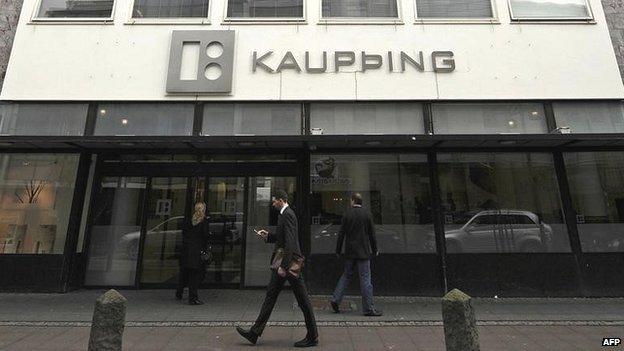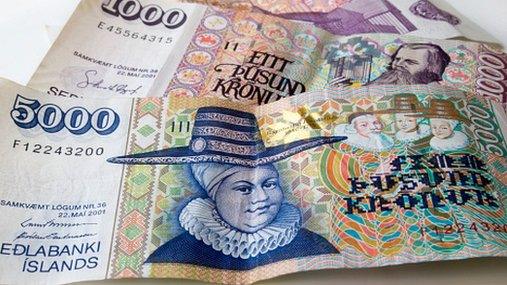Iceland set 'to end capital controls'
- Published

Iceland is considering ways to end capital controls after a vote in parliament to tighten financial regulations.
The government has outlined proposals to unfreeze assets worth 1,200bn krona ($9bn), subject to a 39% tax.
Capital controls, such as those to restrict money flowing in and out of the country, were imposed in 2008 after the country's biggest banks collapsed.
The government thinks the economy has recovered sufficiently to end controls.
"These proposals contemplate addressing these risks through a combination of the payment of a voluntary stability contribution together with other measures designed to attenuate the release of crowns that have been trapped behind the capital controls and augment the foreign currency reserves of the Central Bank of Iceland," it said in a statement.
The government imposed the controls in 2008 after the collapse of the country's three biggest banks - Glitnir, Landsbanki and Kaupthing - saw Iceland's national currency, the krona, plunge in value.
Foreign currency for holidays abroad is still tightly controlled.
- Published19 June 2014
